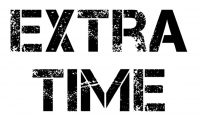
The November data from the Ulster Bank Northern Ireland PMI IHS Markit report shows business activity in the region at its lowest in seven years. Anna Tobin reports
The Ulster Bank Northern Ireland PMI IHS Markit report showed the headline seasonally adjusted Business Activity Index dropped to 42.3 in November, from 44.9 in October. Output in Northern Ireland has now fallen in each of the last nine months and the rate at which it is contracting is the fastest for seven years.
The respondents named Brexit uncertainty as the primary reason for the decline in activity and reduction in new orders; the rate of decline in new orders was the sharpest since May 2012. A reluctance among customers to commit to new projects was another contributing factor.
Sales
The Ulster Bank data showed that a number of firms offered discounts as part of an effort to boost November sales. On the upside, businesses are confident about the next twelve-month outlook for output for the first time in four months. While Brexit is still a worry, some firms forecast greater certainty next year and a return to new order growth.
“One of the most striking aspects of the latest survey is the continued resilience of the labour market, with firms broadly maintaining their staffing levels, despite a big fall-off in demand. Indeed, the pace of decline in business output and new orders fell to seven and seven-and-a-half-year lows respectively last month,” said Richard Ramsey, chief economist Northern Ireland for Ulster Bank.
“All four sectors have posted falling output in six of the last seven months; however, the performance of retail and construction are of particular concern. Construction order books continued to shrink for the 15th month in a row and November marked the sharpest rate of decline in 92 months. It is a similar story for retailers with orders falling at their fastest pace since March 2009.
“In this environment, firms’ desire to maintain staffing levels comes at a cost to profit levels. The latest survey shows that input price inflation continued to rise in November, but firms are not able to pass these increased costs onto their customers and indeed discounting is widespread in an attempt to generate new business.
“Firms, therefore, seem willing to take a hit to their profits in the short-term in the hope that conditions will improve once there is greater certainty around the situation with Brexit. Indeed, their expectations for the year ahead are relatively upbeat overall with an expectation that business conditions will have improved marginally in 12-months’ time; albeit that this is largely confined to manufacturing and services.
“This may well prove to be overly optimistic however as even if a Brexit deal is passed there is still much to be decided around the new relationship with the EU and how any new arrangements would work. Uncertainty will, therefore, continue to be very much present in 2020.”



























































































